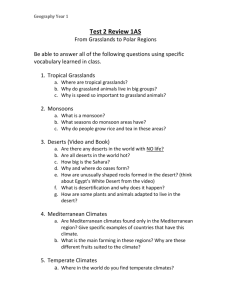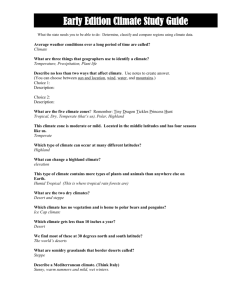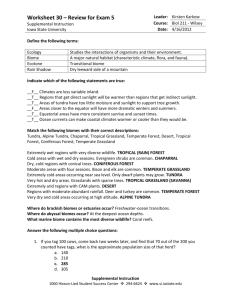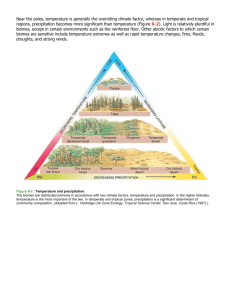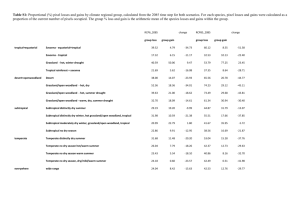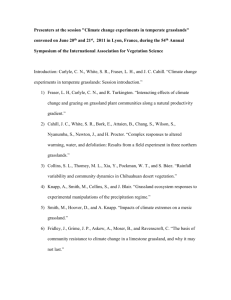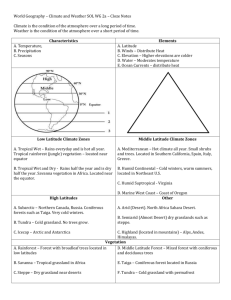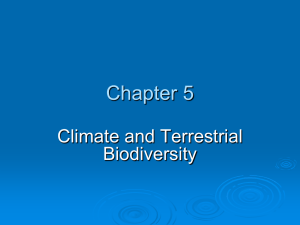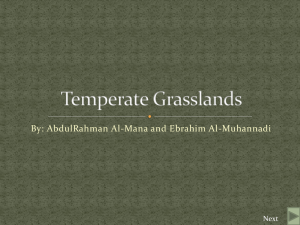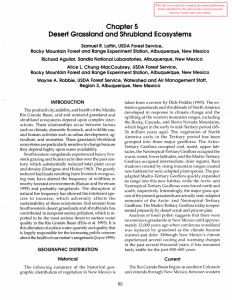Climatogram wksh
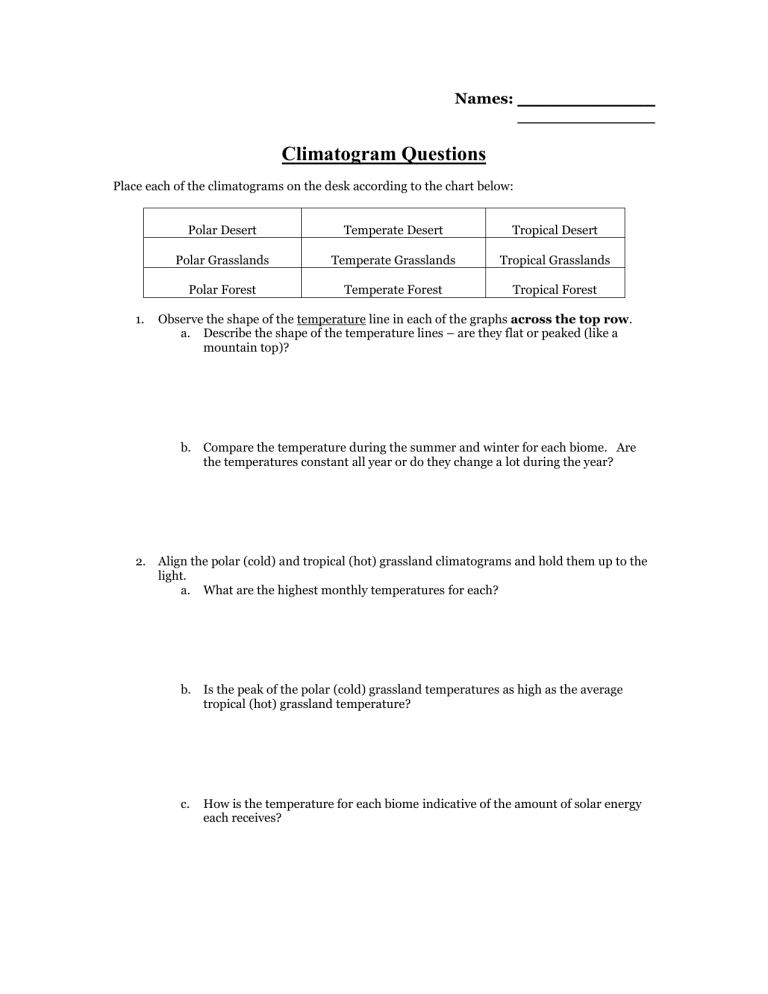
Names: _____________
_____________
Climatogram Questions
Place each of the climatograms on the desk according to the chart below:
Polar Desert
Polar Grasslands
Temperate Desert
Temperate Grasslands
Tropical Desert
Tropical Grasslands
Polar Forest Temperate Forest Tropical Forest
1.
Observe the shape of the temperature line in each of the graphs across the top row. a.
Describe the shape of the temperature lines – are they flat or peaked (like a mountain top)? b.
Compare the temperature during the summer and winter for each biome. Are the temperatures constant all year or do they change a lot during the year?
2.
Align the polar (cold) and tropical (hot) grassland climatograms and hold them up to the light. a.
What are the highest monthly temperatures for each? b.
Is the peak of the polar (cold) grassland temperatures as high as the average tropical (hot) grassland temperature? c.
How is the temperature for each biome indicative of the amount of solar energy each receives?
3.
You’ll be given a climatogram of a temperate grassland from Argentina (latitude: 29º S). a.
Compare the temperature trends between the temperate grassland from
Argentina and the temperate grassland from San Antonio (latitude: 29º N). b.
What differences are there between these two biomes? c.
What similarities are there between these two biomes? d.
What causes these similarities and differences?
4.
Study the climatograms looking from top to bottom for the three tropical climate
biomes. a.
Describe the amounts of precipitation in each. b.
Do you see any patterns as you look from forest to grassland to desert? Describe them.
